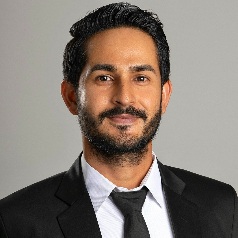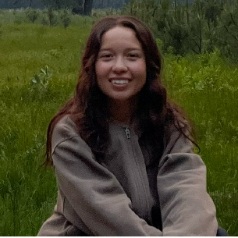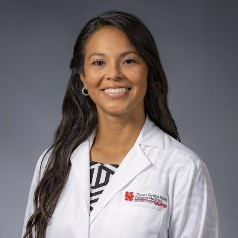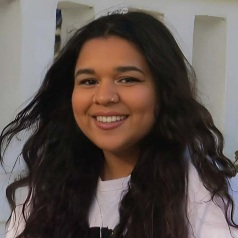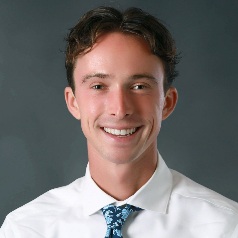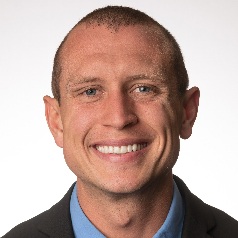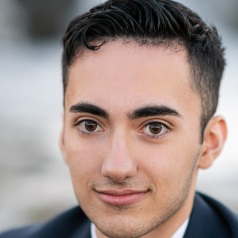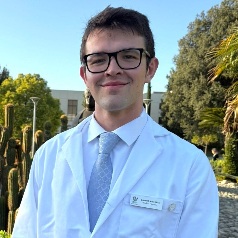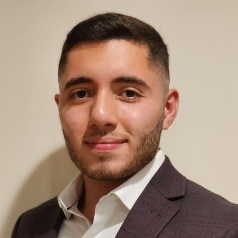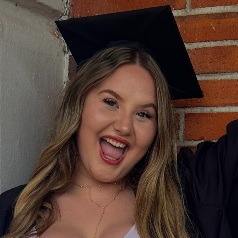The 2025 WCI Scholarship process is now complete, and today, it is my pleasure to announce the winners. Thank you to our many volunteer judges (none of us here at WCI judge this contest; only regular WCIers do) and especially to our staff members who managed this crazy process.
This is the 11th year for the WCI scholarship, funded primarily by sponsors and WCI profits. Not only does it help us promote financial literacy in professional schools, but it is also another way for Katie and me to give back to a community that has given us so much. Thank you to the Platinum and Gold sponsors for this year. Please support them as they support our mission.
Platinum Level Contributors ($8,000 or more)
The White Coat Investor, LLC
Matthew Wiggins (Doc Insure LLC) – Disability and Life Insurance
Splash Financial – Student Loan Refinancing and HELOC loans
Gold Level Contributors ($1,500 or more)
Chad Chubb (WealthKeel LLC) – Financial Advising
Jon Appino (Contract Diagnostics) – Contract Review/Negotiation/Compensation Analysis
Josh Mettle (Neo Home Loans) – Physician Mortgage Loans
Dustin Peltier (Well-Being Wealth Strategies) – Disability and Life Insurance
InCrowd – Medical Surveys
Clint Gossage (CMG Financial) – Financial Advising
Scott Nelson Archer & Amber Stitt (M.D. Disability Quotes) – Disability and Life Insurance
Rick Warren (Insuring Income) – Disability and Life Insurance
Johanna Turner (Fox & Company CPAs) – Tax Strategy and Planning
Adam Grossman (Mayport Wealth Management) – Financial Advising
We decided to simplify things a bit this year, so we only have one big category of 10 winners. However, we received 1,447 different applications vying for their piece of the prize. That's, by far, the most applications we've ever had.
The winners get a big, fat cash check ($5,685 each) as well as access to our online course, Financial Wellness and Burnout Prevention for Medical Professionals ($1,099 value), and a copy of The White Coat Investor's Guide for Students book. Over the last 11 years, we have given away a total of $600,261 in cash, plus tens of thousands of dollars in prizes.
Congratulations to each of the winners! Let me introduce them to you and include a short excerpt of their winning essay.
Narayan Dhimal of the Jacobs School of Medicine and Biomedical Sciences
A first-generation immigrant, Narayan penned an essay explaining that being poor doesn't mean being powerless.
“. . . My aunt died of cholera in the camp, a disease that is easy to treat with oral rehydration therapy in better-resourced settings. My grandmother suffered for years from what we later learned was a liver disease, but she died shortly after being diagnosed in the US—too late for treatment . . . When we were finally resettled in the United States . . . my father worked at a gas station and later at a cemetery, and my mother began cleaning hotel rooms, a job she still holds . . .
I worked part-time jobs during undergrad and used every resource available—textbook rental programs, tutoring positions, and scholarships. I also lived frugally: bus rides instead of a car, meal prepping in bulk, and using lab coats and equipment. I developed a habit of tracking every dollar I spent using a spreadsheet, which became one of the most empowering tools I’ve ever used . . . I still update my budgeting every couple of weeks. I continue applying for scholarships every semester and tutor students when time permits . . . The truth is, medical school is demanding. Balancing finances on top of that requires not just planning but purpose . . . My journey has taught me that being poor doesn’t mean being powerless. I’ve built a life around intention—academically, professionally, and financially. I believe financial literacy should be taught in every stage of training, especially in medicine. Many of us come from underrepresented backgrounds and carry not just our own dreams but the hopes of our families . . . Medicine is my calling, but budgeting is how I got here. And I plan to carry both with me—one to heal, and one to survive.”
Catherine Shaw of California Baptist University PA School
A second-generation immigrant, Catherine wrote about hot chocolate with cheese and other unexpected combinations. I believe Catherine is our first APC student winner of this scholarship, yet another unique combination.
“Growing up with immigrant parents meant that childhood was shorter. By the time I was 10, I had added ‘translator' to my résumé. I read and explained legal documents, interpreted during medical appointments, and navigated transactions at banks and stores. I was not only helping my parents adapt to life in America but also stepping into roles most children don’t take on until adulthood. At times, I felt like I was the only fifth-grader who knew the difference between a deductible and a co-pay—which, for the record, does not make you popular at recess . . .
Now, standing on the edge of starting PA school at California Baptist University, I know the road ahead will bring financial challenges. Graduate school is expensive, and loans are almost unavoidable. But just as I did with undergrad, I began taking a strategic approach: saving early, applying for every scholarship I qualify for, and making intentional spending choices. I’m determined to keep debt as low as possible so that when I graduate, my focus can be on my patients and not my payments.”
Read the rest of her essay.
Blanca Morales of the University of Houston Fertitta Family College of Medicine
Like a fair number of our winners this year, Blanca is also a second-generation immigrant. Blanca wrote about changing her spark plugs for the first time, a money-saving DIY skill my children learned after getting stranded.
“A ‘gap year' turned into 10 years of unpaid internships in life skills because no one could guide me. I learned by falling, getting back up, and—sometimes too late—asking for help. Like when I bought our first family car with my hard-earned savings, thinking I was giving us freedom, only to discover it came with a million problems. I didn’t know what I was doing, but I couldn’t afford not to learn. That car became my classroom. I figured it out one breakdown at a time, and in the end, it lasted long enough to teach my mother and siblings how to drive . . .
At 10, I met my father for the first time and moved to Texas, hopeful for a fresh start. We lived together—for all of 1 1/2 months—in a shack that made ‘fixer-upper' sound luxurious, until he moved us under a tree on an empty lot and said he was going to work. He never came back. Not that day, not ever. Eventually, we ended up in a shelter and then on a Greyhound bus back to California . . .
Before you pay someone to fix it, ask yourself: is there a YouTube tutorial for that? That’s how I made it to medical school, too—YouTubing how to study, how to apply, how to stay afloat. But more importantly: build community. That’s the best investment I’ve ever made.”
Read the rest of her essay.
Sesa Doshi of the A. T. Still University of Health Sciences
Another second-generation immigrant, Sesa penned her essay about her pink piggy bank.
“At first, I saw it simply as a toy. Over time, I began to understand what it really symbolized—that even in scarcity, my parents found a way to give. They may not have had the money for shiny and expensive presents, but they gave me everything else—the ideals of perseverance, humility, and a vision of what could be built from almost nothing. To this day, that piggy bank sits on my shelf as my most prized possession. Someday, I plan to give it to my children as a reminder of where our family began . . .
Despite my goals, I can’t ignore the financial reality. Even with FAFSA and tutoring, the cost of tuition and living expenses looms large. The debt is daunting, and sometimes seeing the numbers on the screen feels heavy enough to distract me from why I am here. That is why scholarships and organizations like The White Coat Investor matter. They don’t just relieve a financial burden, they free students like me to focus on our mission, on the patients we will serve, and on the kind of physician we want to become.”
Read the rest of the essay.
Nick Hakes of the University of Alabama at Birmingham School of Medicine
Nick, like me, spent a little time in the ICU with some memory issues. Not a lot of medical students can describe themselves as a stroke survivor. He has become an advocate for both stroke care AND financial literacy. No surprise to see him showing interest in the best specialty.
“When I became a patient myself, I refused to ask for help until a week after my strokes. When my brother arrived and I recognized him but failed to recall his name, I realized I was a burning barn. I could not care for others unless I first cared for myself. The costs of therapy and medication nearly broke me, and I knew many patients had less resources than I did. I began to see financial wellness as inseparable from clinical care.
Medicine rarely teaches physicians to navigate this dimension of healing. Recognizing the gap, I began sharing what I had learned with my medical school classmates. I explained deductibles, copayments, coinsurance, and how to read explanation of benefits statements. I even formed a financial education committee to weave these lessons into the curriculum. Their enthusiastic response affirmed what I had come to believe: financial literacy is preventive medicine, and physicians ought to play a role in delivering it . . .
Financial literacy, I have come to realize, is preventive medicine. It preserves dignity, protects recovery, and keeps patients from becoming casualties of the very system meant to heal them. By integrating my clinical experience with business and policy expertise, I will help more patients than I could ever treat myself. This is how I will create a future where healthcare is truly accessible and affordable.”
John Stalnaker of the Northeast Ohio Medical University
After being inspired while working on a cattle farm, John is now a previously homeless non-traditional medical student and a father just trying to keep all the balls in the air.
“Here’s the problem with big dreams: they come with big price tags. Returning to college as a non-traditional student was like starting a marathon in flip-flops. I had to relearn how to study, sacrifice weekends, and say no to countless social events. And while many of my classmates were worried about where to go out on Friday night, I was worried about keeping the lights on at home.
Because by this point, I wasn’t just a student—I was a fiancé and father. Today, I have four kids, ages ranging from 1-year-old to almost 12. They are my motivation and my reality check. Nothing will sharpen your budgeting skills quite like trying to stretch grocery money for a family of six.
I quickly learned that financial literacy wasn’t optional; it was survival. My fiancée and I rely on Medicaid, food stamps, and assistance programs for electricity. Even with that help, we plan carefully, down to the penny. I’ve worked construction, farmed, and studied medicine late into the night, sometimes all in the same week. My kids have seen me study with flashcards on the sidelines of their games and fall asleep at the dinner table after a long shift . . .
The White Coat Investor book was a game-changer. I used to think “investing” was something for people in suits on Wall Street, not someone who once lived out of a car. But this book helped me realize that financial success in medicine doesn’t come from luck; it comes from intentional decisions, like living below your means, avoiding debt traps, and saying no to the “doctor lifestyle creep” . . .
Some of my classmates talk about burnout. I get it; I’ve felt it, too. But I’ve also seen what real burnout looks like when you’re working three jobs just to have heat in the winter. I’ve learned that medicine is a privilege, even when it’s hard.”
Read the rest of the essay.
Aryan Abazari of William Carey Medical School
Aryan immigrated alone at 14 from Iran. He writes about how his brother and his untimely death inspired him.
“Life can be cruel. My brother struggled silently with depression for years. Despite his brilliance, kindness, and ambition, the weight of untreated mental illness eventually overwhelmed him. He died by suicide before he could begin graduate school.
His loss shattered my world. But it also gave my purpose new urgency . . .
Every dollar mattered. I learned how to budget using free apps. I devoured personal finance content on YouTube and podcasts—especially from The White Coat Investor. I started building credit the right way, opened a Roth IRA, and used high-yield savings accounts before most of my classmates knew what a deductible was . . .
I lived in a modest room, meal-prepped every week, and bought a used 2008 Honda Civic in cash after saving for years. No luxuries. No credit card debt. Just relentless focus. While some peers went on vacations or upgraded their electronics, I invested in myself—slowly, steadily, and with purpose.
And now, I want to help others heal emotionally, physically, and even financially. I want to be the kind of doctor who listens carefully, who understands what it means to live in survival mode, and who empowers patients with not just treatment but with hope.”
Read the rest of the essay.
Baylor Wiggins of the Loma Linda University School of Medicine
Baylor chose to write about guacamole. It turns out the judges, just like you and I, love guacamole.
“[After the death of my father] I quickly became isolated from my peers. I could not afford to go on trips or even go out to eat with them. Eventually, I lost friends. We prioritized groceries over holidays, and electricity over entertainment. There was no room for extras and no backup plan. I was left with a profound hole in my heart and a newfound responsibility to help hold the two of us together . . .
There was no ladder for me to climb, so I decided to build one . . . When the COVID-19 pandemic hit and the world slowed to a crawl . . . I opened up a new kind of door: the door of becoming financially literate. I knew I wanted to pursue medicine, but before I got serious about MCAT prep, I decided to get serious about my finances . . . A common theme echoed through everything I watched and read about finance: the best time to start was ‘yesterday.' The second-best time? Right now. That mindset lit a fire under me; I would be worse off if I waited than if I got started with something. I began investing—not just financially, but mentally. I read The Psychology of Money and Rich Dad Poor Dad.
A pattern emerged in the stories I was drawn to: the people who succeeded financially were not necessarily the highest earners; they were the most intentional with their time and the money they had. They budgeted. They spent less on what didn’t matter and invested in what did . . .
As I continued building my financial savviness, I learned how I could use certain credit cards strategically . . . I did not game the system; I studied it. I felt a sense of control over how I responded to my circumstances.
The first time I had enough saved to say yes when a friend invited me to Chipotle felt like a small but powerful win. When the cashier asked if I wanted guac, I said yes without hesitation. That moment became my personal mission statement: save wisely so you can say yes to what matters, even if it is just guac.”
Read the rest of the essay.
Matthew Babayev of the CUNY School of Medicine/Sophie Davis
Matthew wrote about playing Chopin and dealing with his immigrant parents' bankruptcy.
“My classmates didn’t understand why I worked 20 hours a week teaching piano while maintaining a 3.9 GPA. They didn’t see my youngest brother’s college fund growing from those lessons or my parents finally sleeping through the night without worry. But my professors did. They saw a student who understood viscerally why our mission mattered . . .
The bankruptcy that once threatened to silence our dreams became the very thing that prepared me for Sophie Davis’s mission. It taught me that medicine isn’t just about healing bodies but about healing the less fortunate, and doing so in a financially responsible way. This scholarship isn’t just financial support. It is validation that students like me, whose families have seen dreams deferred by economic reality, belong in medicine. With your help, I won’t just become another physician. I’ll become proof that financial hardship can forge the very compassion and determination that our healthcare system desperately needs, especially for those it has historically left behind.
My fingers still remember Chopin, but now they’re learning a different art—one deeply intertwined with human life, namely, the art of medicine.”
Read the rest of the essay.
Kendalynn Friend of the Eastern Kentucky University OT Program
Our first scholarship winner from an OT or PT doctorate program, Kendalynn wrote about her challenging upbringing and the financial lessons she learned.
“I discovered the power of financial literacy—how saving, no matter how little, creates a sense of stability in a life that otherwise felt uncertain. While I couldn’t yet invest in stocks or retirement accounts, I was investing in myself. Each tuition payment, each late-night study session after a long shift at work, was a contribution to a future I could barely yet imagine.
Graduating with my bachelor’s degree was more than just walking across a stage. It was proof—to myself, to my siblings, and to anyone who doubted me—that where you come from doesn’t have to define where you end up . . .
Pursuing a graduate degree means new challenges: larger financial commitments, higher expectations, and the constant balancing act of academics and survival. But I carry with me the lessons I’ve already learned about money, resilience, and sacrifice. I know how to live within my means, how to say no to unnecessary expenses, and how to prioritize what will matter 10 years from now over what feels good today . . .
The White Coat Investor’s mission resonates with me deeply because I know firsthand how financial decisions can shape a person’s future. I know that learning to manage money wisely, even when there isn’t much of it, can mean the difference between staying stuck and moving forward.
If there’s one message I want to leave my siblings—and others who come from backgrounds like mine—it’s this: financial struggle doesn’t mean financial failure. Growing up poor, with addicted parents and no financial guidance, I could have easily fallen into the same patterns. But instead, I chose to view money not as a source of shame or stress but as a tool. A tool that, when managed carefully, could create opportunities, security, and freedom.”
Read the rest of the essay.
Congratulations to all of this year's winners!

